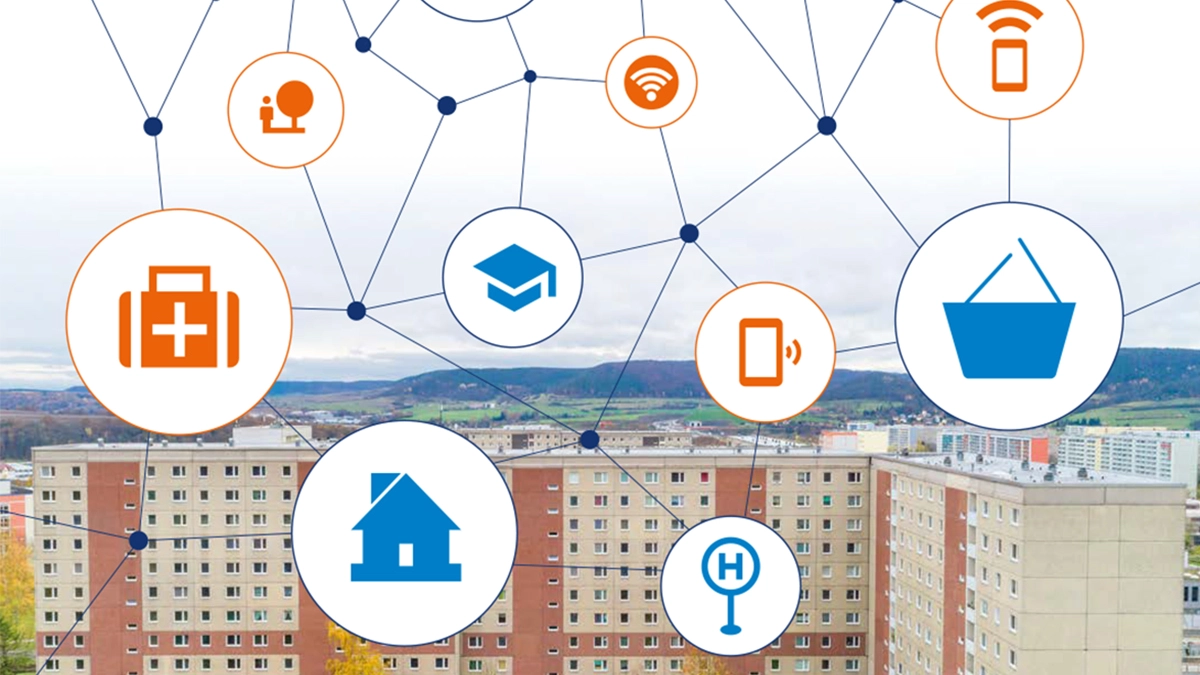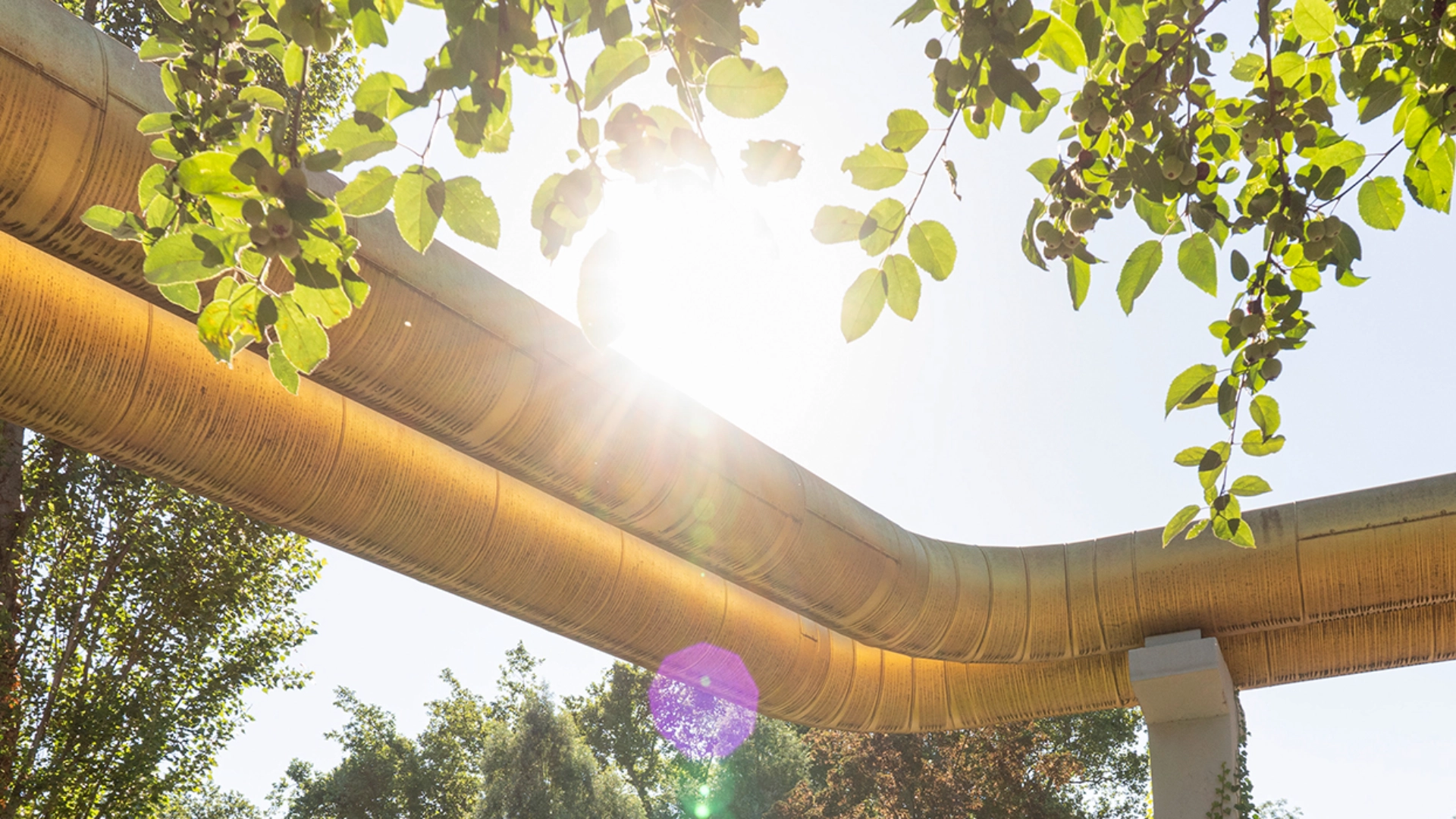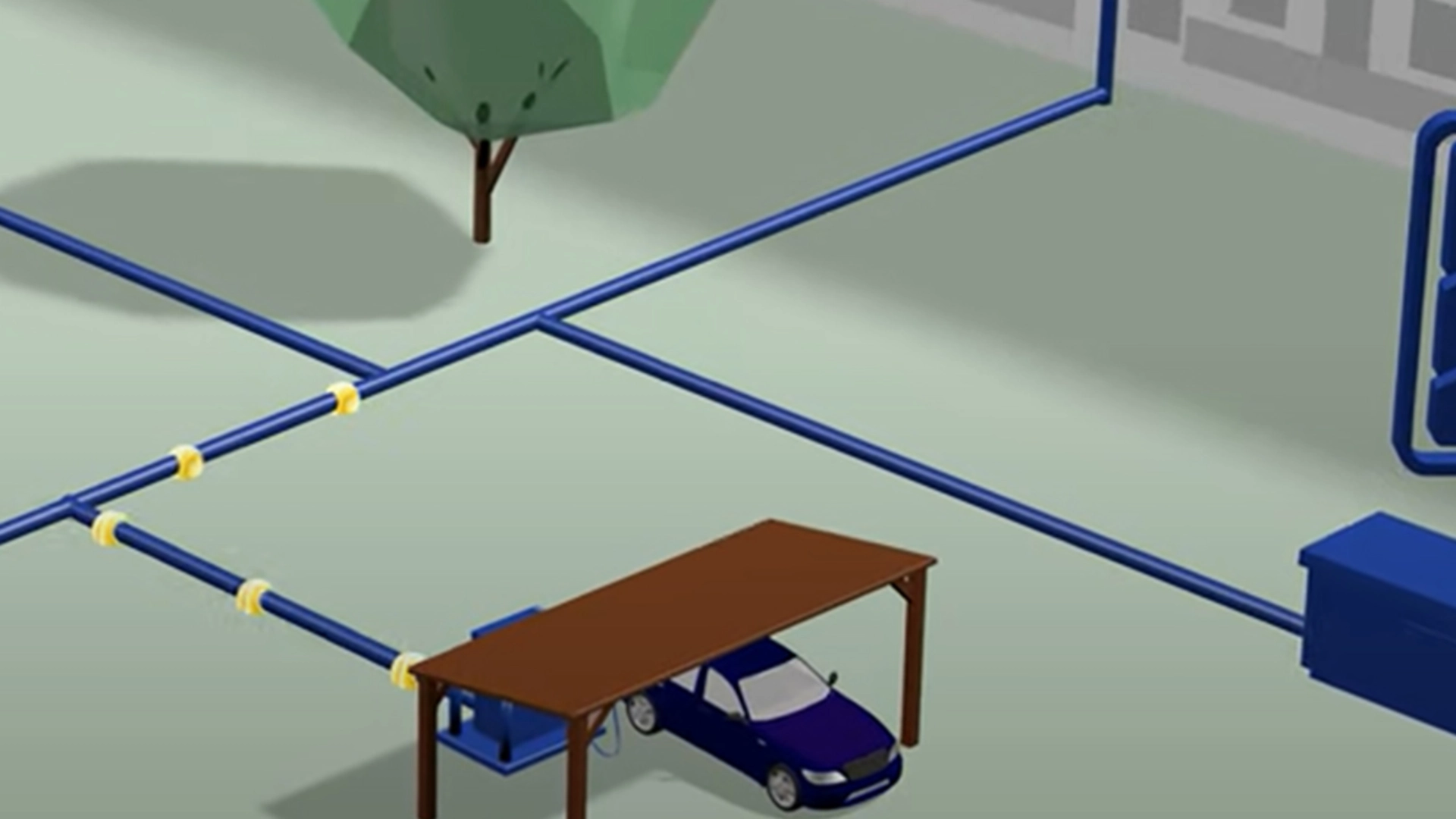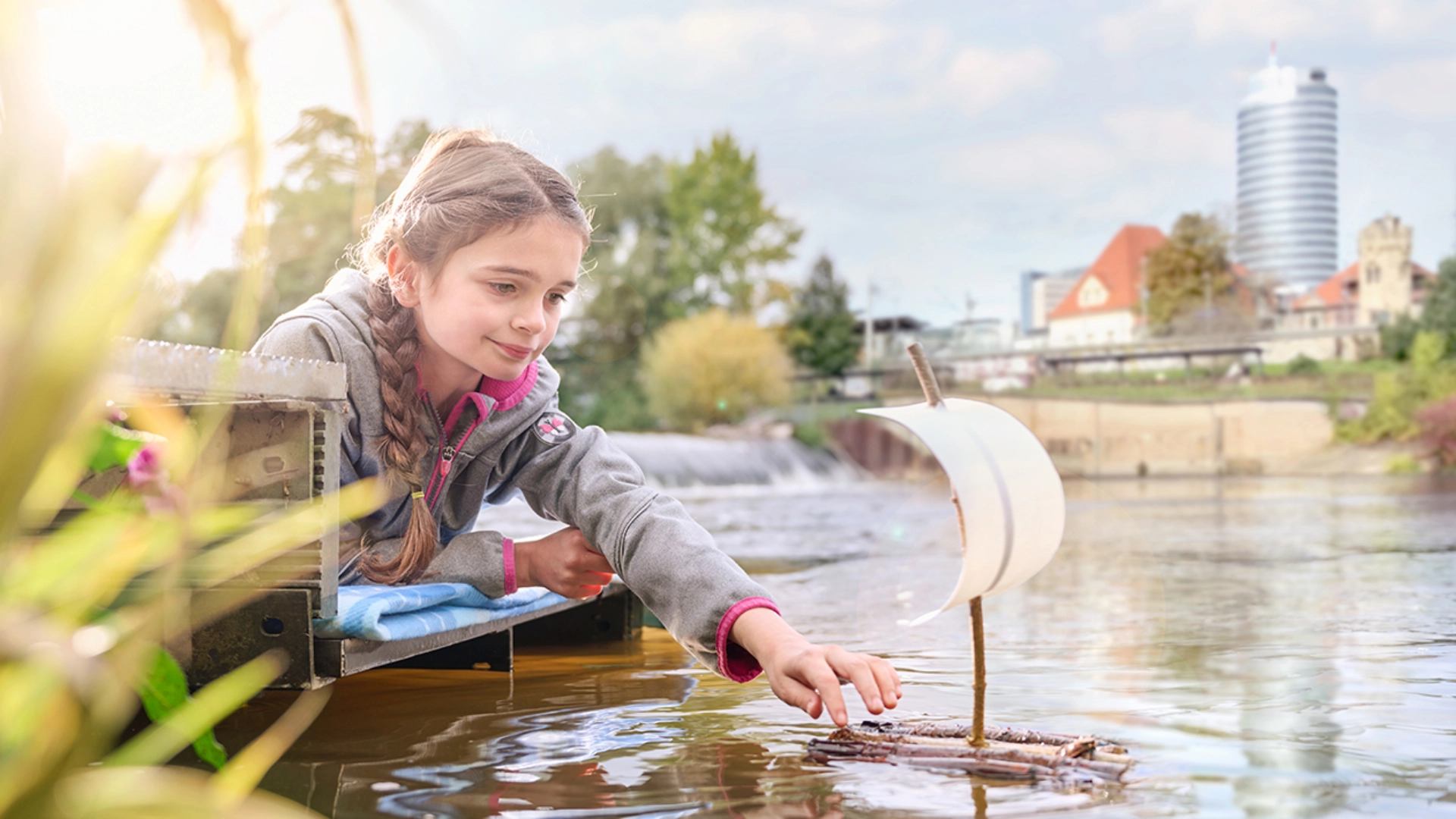Living in a climate friendly manner
About 35 percent of our energy is consumed within buildings: for heating, water heating and as household electricity. As Thuringia's largest landlord, jenawohnen is working together with other companies of the Stadtwerke-group in order to find ways to reduce this consumption and also to make housing more climate-friendly.
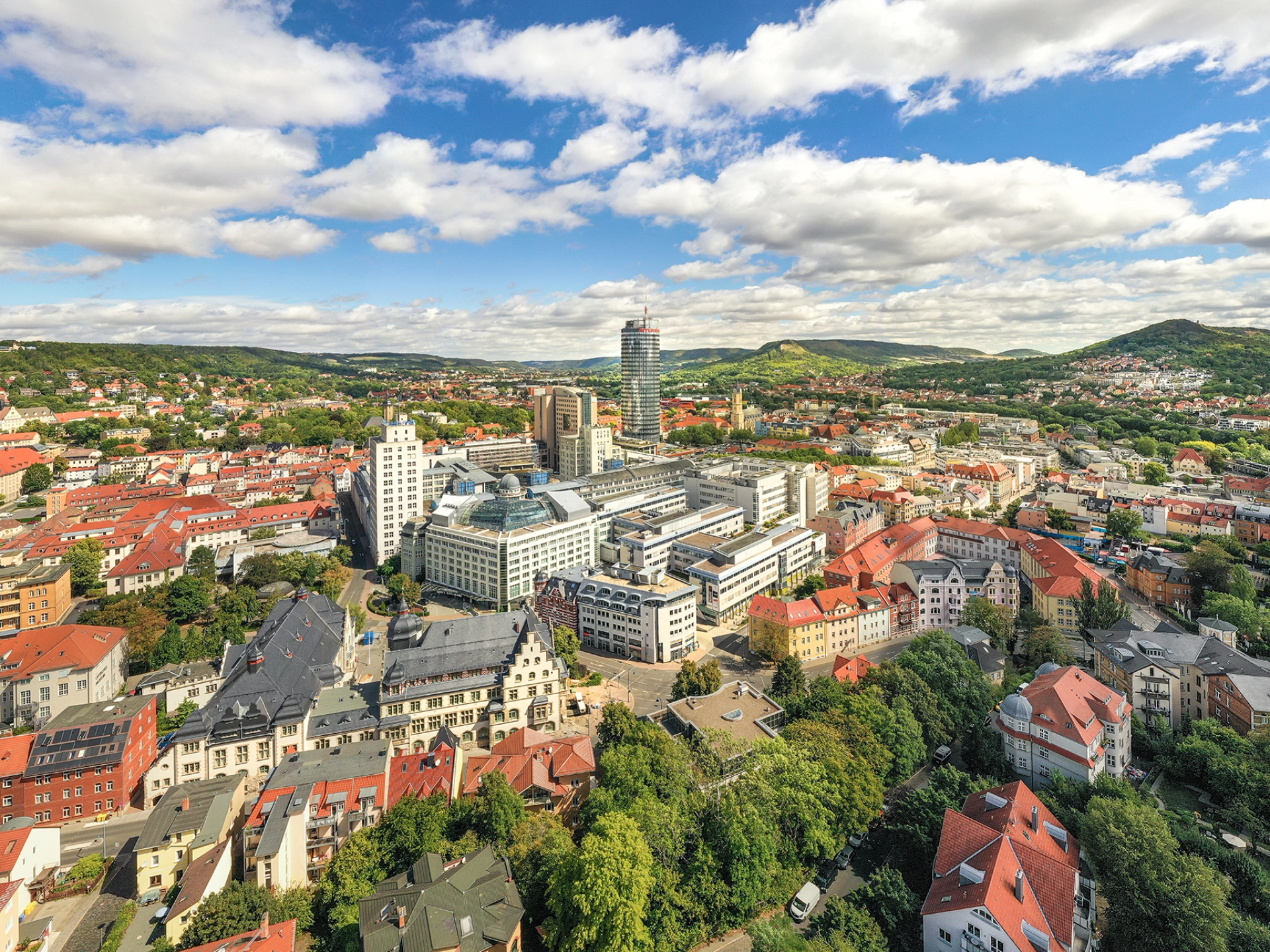
Initiative "Wohnen 2050"
Since 2020, jenawohnen has been involved in the nationwide initiative "Wohnen 2050" ("Housing 2050"). This is an association of by now almost 200 housing companies. The initiative serves the exchange of experiences in view of the overarching goal of achieving climate neutrality in the housing industry.
Since 2019: Bee meadows instead of dead grass in Lobeda and Jena-Nord

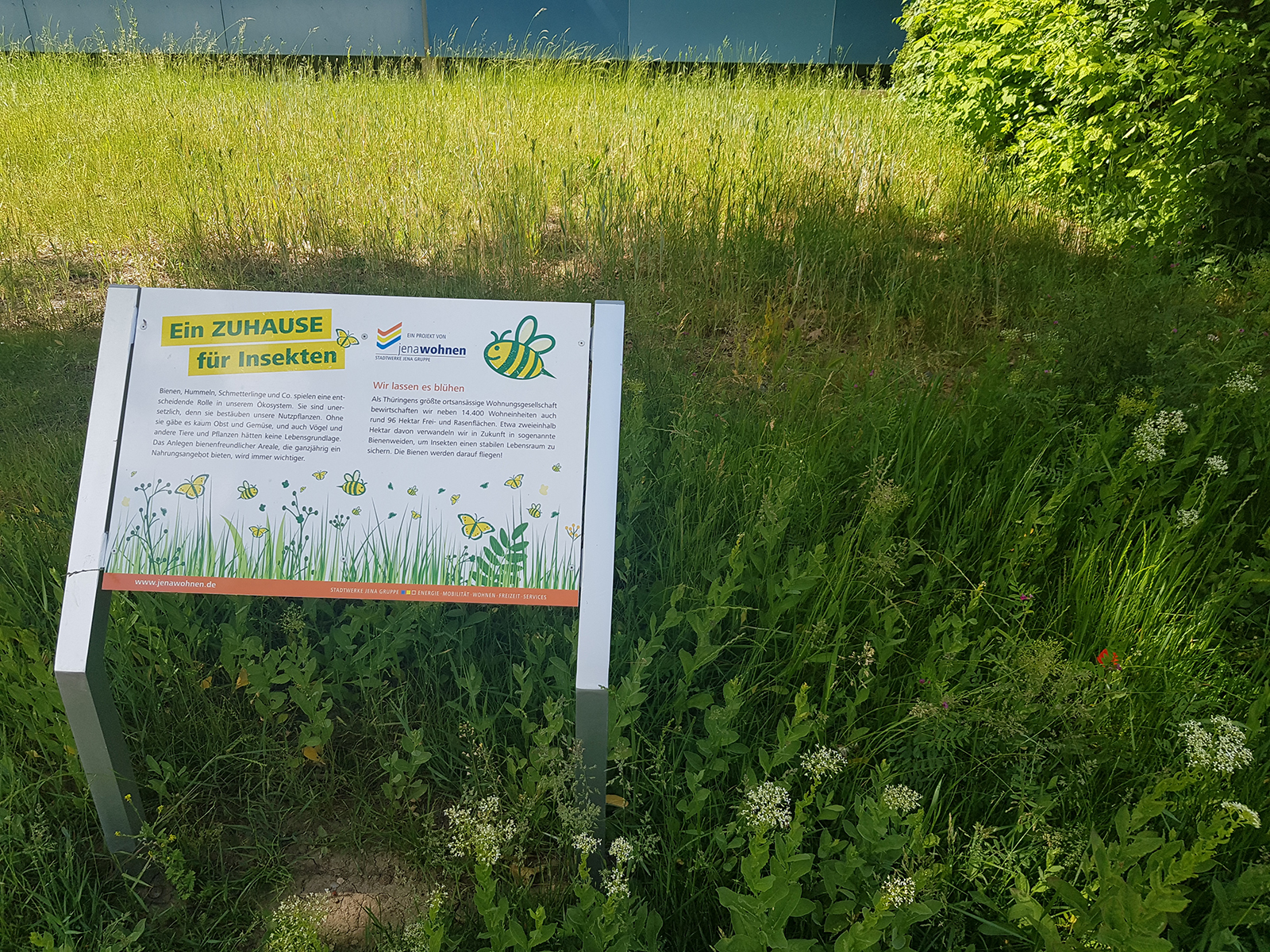
Since the summer of 2019, jenawohnen has been giving nature more room within the city by means of the pilot project “bee meadows” which is spanning across a total of 2,400 square meters divided across several locations in Fregestraße 2 to 4 in Lobeda-West and Händelweg 4 in Jena-Nord. So far in this area, „normal“ lawns have been transformed into colorful flower and herb meadows.
The meadows not only look pretty, they also fulfill an important function. The wildflower and herb meadows that bloom varyingly depending on the season almost all year round attract insects with their scent and provide food for pollen-collecting animals almost the entire year. Songbirds also find plenty of food in the meadows, as they feed on insect larvae in spring and on plant seeds that fall out in late summer and autumn.
In order to be able to fulfill this important task, the fields are planned to be mowed twice a year at the most, instead of up to eight times as was done in the past, namely in late summer after the flowering and seed formation of the vegetation and, if necessary, once again before winter. So far, a total of 2,400 square meters of green space have been transformed into insect pastures at both sites.
Since 1993: 65% less CO2 emissions
jenawohnen is already doing much to reduce CO2 emissions in its housing stock.
Since 1990, for example, insulated glass windows have been gradually installed in all buildings, and roofs as well as basement ceilings have been insulated. In places where there is still no external wall insulation, it is gradually being added. For this, modern and environmentally friendly insulation materials are being used.
These measures have begun to show the fist measurable successes: 90 percent of jenawohnen flats are supplied with environmentally friendly district heating. In terms of household electricity, the vast majority of tenants obtain emission-free green electricity from the Stadtwerke Jena.
Due to these measures and the modernization of district heating generation, CO2-emissions in the buildings of

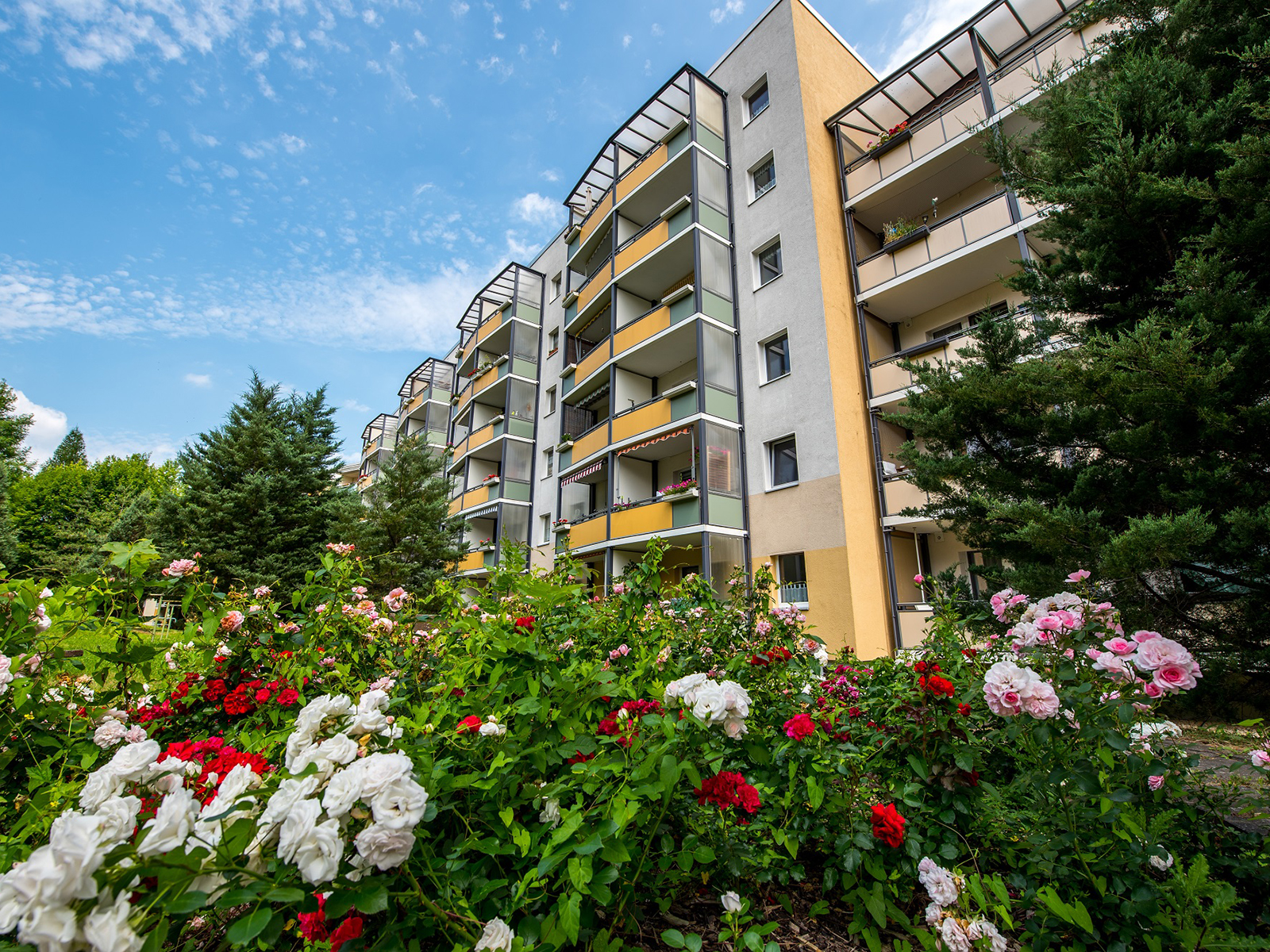
Since 2012: Thuringia's first multifamily passive house in Jena-Ost

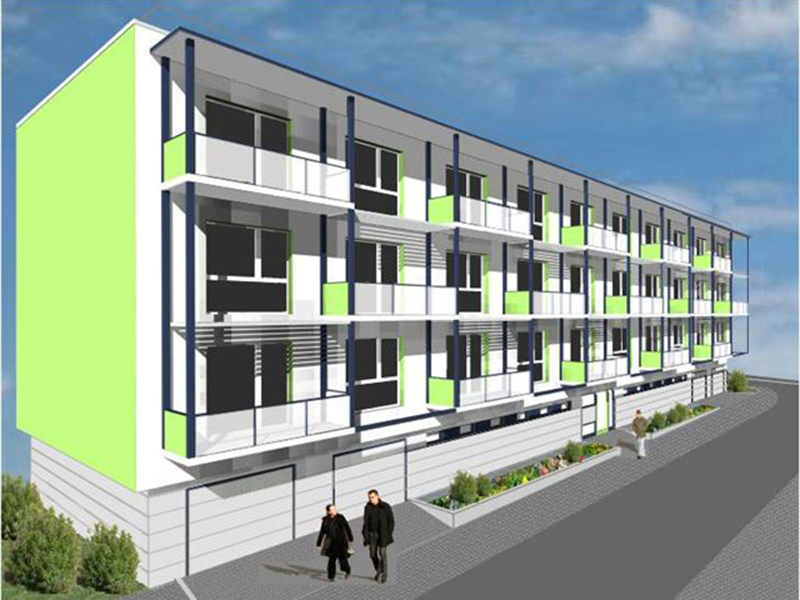
Twelve flats, no radiators: Already in 2012, jenawohnen inaugurated Thuringia's first multi-family passive house in the Kunitzer Straße.
And there are indeed no radiators in the apartment building in Wenigenjena. Instead, the heat that is generated within the house itself, for example by people or technical equipment, is used for heating. Thanks to a gapless insulation and a triple insulated glazing, the generated heat remains within the building and is returned to the rooms via a ventilation system. This protects the environment and the wallet.
Further topics regarding the housing of the future
.


